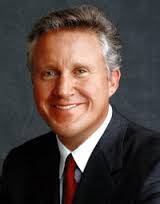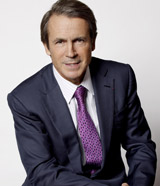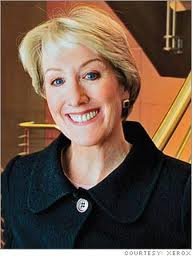 Defining corporate culture and its impact on strategy has become a major area in academic research and in the world of consultancy. John Childress’ book, which is entertaining and gives many examples, tries to outline exactly what culture is and how this can be dealt with on a day to day basis.
Defining corporate culture and its impact on strategy has become a major area in academic research and in the world of consultancy. John Childress’ book, which is entertaining and gives many examples, tries to outline exactly what culture is and how this can be dealt with on a day to day basis.
Key words:
Corporate culture, leadership, organization, management, employees, subculture
Summary:

Childress investigates social aspects within corporations and decribes their influences
Childress is a management consultant and clearly has a good understanding of what culture is and its impact on the results of a company. He gives some nice examples of disasters within companies due to their culture not being aligned with their strategy. Carly Fiorina failed as the CEO of Hewlett Packard because she tried to impose a sales driven culture in an organization that was largely dominated by engineers who simply did not understand what the CEO was trying to achieve. This is an excellent lesson in the fact that performance is not just a question of having a top-down strategy that is imposed by senior management. In fact, the rank and file of an organization and employees of all levels have a big role to play in ensuring that the company performs well.
One of Childress’ big contributions is pointing out that often managers and bosses possess ambitious plans in changing the culture of an organization. Unfortunately, this rarely works. In fact, companies that have managed to change their culture have done so by making small changes and consistently driving them forward on a day-to-day basis. Of course, this is not quite as sexy as the grandiose plan, but it is much more effective.
The book is also highly entertaining in that it gives many diagrams to make the notion of corporate culture easier to understand. In one graph, it shows just how unpopular Ryanair is with a 35 to 40 percent negative rating in a Yougov poll. This has not stopped the company from becoming highly successful. Culture can be very important in ensuring that the alignment between strategy and culture is adequately executed and will make a major contribution to the success of a company.
Interesting quotes:
“Carly Fiona, the celebrity CEO of Hewlett-Packard was fired for trying to turn a culture of “technical excellence” to “sales culture.” It was a change too far and HP culture was too strong.”
“CEOs can talk and blab all day about culture, but the employees know who the jerks are. – Jack Welch”
“Warren Buffett, one of the more savvy investors of the past three decades, made a bold and profound statement in a recent annual letter to the Berkshire Hathaway shareholders: “Culture, more than rule books, determines how an organization behaves.”
“The culture of the factory is its customary and traditional way of thinking and of doing things, which is shared to a greater or lesser extent by all its members, and which new members must learn, and at least partially accept, in order to be accepted into service in the firm.”
“MIT Professor Edgar Schein (often referred to as the father of corporate culture) put culture on a more solid academic footing when he published Organizational Culture and Leadership in 1985.”
“Booz Allen Hamilton, along with The Aspen Institute conducted a global survey in 2005 with 9500 senior executives. They found that 89% of the companies surveyed had written values statements.”
“They found that 89% of the companies surveyed had written values statements.”
“Your brand is formed primarily, not by what your company says about itself, but what the company does. – Jeff Bezos, CEO Amazon”
“Another problem with so many experts writing about culture is the confusion between corporate culture and climate.”
“I believe it makes good sense for the senior executives to look closely at the business processes they are using internally. What I suspect you will find is that many of them are “legacy processes” developed some time ago when business conditions are different and might just be fostering a set of behaviours counter to the culture you now require.”
“The Netflix culture deck, titled Netflix Culture, Freedom and Responsibility, published on the web (Hastings, 2013) has over 4 million viewings and Facebook likes. Sheryl Sandberg, COO of Facebook, called it “the most important document ever to come out of Silicon Valley.”
“People don’t resist change. They resist changed! – Peter Senge”
“75% of what people want from work is NOT pay related!”
“When you hear the word “merger of equals”, grab your wallet and run!”
See more book reviews:

Common myths and stories that are so popular that they have become ingrained in our culture, and become retold throughout the world: Did you know that the Great Wall of China is the only man-made object visible from space? You did? It’s not true. It’s what´s known as an urban myth. These are so stories that are so popular that they have become ingrained in our culture, and become retold throughout the world. In Made to Stick, Chip and Dan Heath explain why some of these stories ‘stick.’
 I am very grateful to a colleague at work who clearly to took pity on me after seeing all those book reviews on strategy and management stuff. Thinking that I needed a break but realizing that Dostoyevsky or Tolstoy was probably a waste of time, she offered me a collection of cartoons on office humour taken from The New Yorker. Work is one of those things that unite people across borders. Many of the cartoons are easy to identify with whether you are in Stockholm, Shanghai or Santiago de Chile. It is a nice way to take a break.
I am very grateful to a colleague at work who clearly to took pity on me after seeing all those book reviews on strategy and management stuff. Thinking that I needed a break but realizing that Dostoyevsky or Tolstoy was probably a waste of time, she offered me a collection of cartoons on office humour taken from The New Yorker. Work is one of those things that unite people across borders. Many of the cartoons are easy to identify with whether you are in Stockholm, Shanghai or Santiago de Chile. It is a nice way to take a break.
 Commissioned by EFMD and Emerald, this book is an analysis of thirty-nine interviews of key stakeholders in management education. It sets out some of the major issues and talking points, taking the reader through the history of management education to ongoing challenges. Many of these issues are not new, such as the role and value of research, the relevance of teaching done in the classroom, and links to the corporate world. Criticisms of business schools have been ongoing over the past ten years, most notably from within the industry. In 2005, Chris Grey of Warwick Business School argued that they have become just finishing schools for elites to prepare them for well-paid positions in finance and consulting.
Commissioned by EFMD and Emerald, this book is an analysis of thirty-nine interviews of key stakeholders in management education. It sets out some of the major issues and talking points, taking the reader through the history of management education to ongoing challenges. Many of these issues are not new, such as the role and value of research, the relevance of teaching done in the classroom, and links to the corporate world. Criticisms of business schools have been ongoing over the past ten years, most notably from within the industry. In 2005, Chris Grey of Warwick Business School argued that they have become just finishing schools for elites to prepare them for well-paid positions in finance and consulting.
 On May 5, 2019, a Sukhoi Superjet-100 crash led to the death of more than 40 people. Early reports indicate that passengers taking their belongings with them may have slowed the evacuation.
On May 5, 2019, a Sukhoi Superjet-100 crash led to the death of more than 40 people. Early reports indicate that passengers taking their belongings with them may have slowed the evacuation.


 m, the customers at the paper shop, and hairdressers – all told me they were going to vote leave. Vote leave supporters tended to be in their 40s or older, were less likely to have attended a higher education institution and were more likely to be from outside the main urban areas in England and Wales (they were also the most likely to make the effort to vote). Remain supporters tended to be younger, better educated and were more likely to be from the main urban areas or they were from Scotland or Northern Ireland (and, especially the young, less likely to vote).
m, the customers at the paper shop, and hairdressers – all told me they were going to vote leave. Vote leave supporters tended to be in their 40s or older, were less likely to have attended a higher education institution and were more likely to be from outside the main urban areas in England and Wales (they were also the most likely to make the effort to vote). Remain supporters tended to be younger, better educated and were more likely to be from the main urban areas or they were from Scotland or Northern Ireland (and, especially the young, less likely to vote).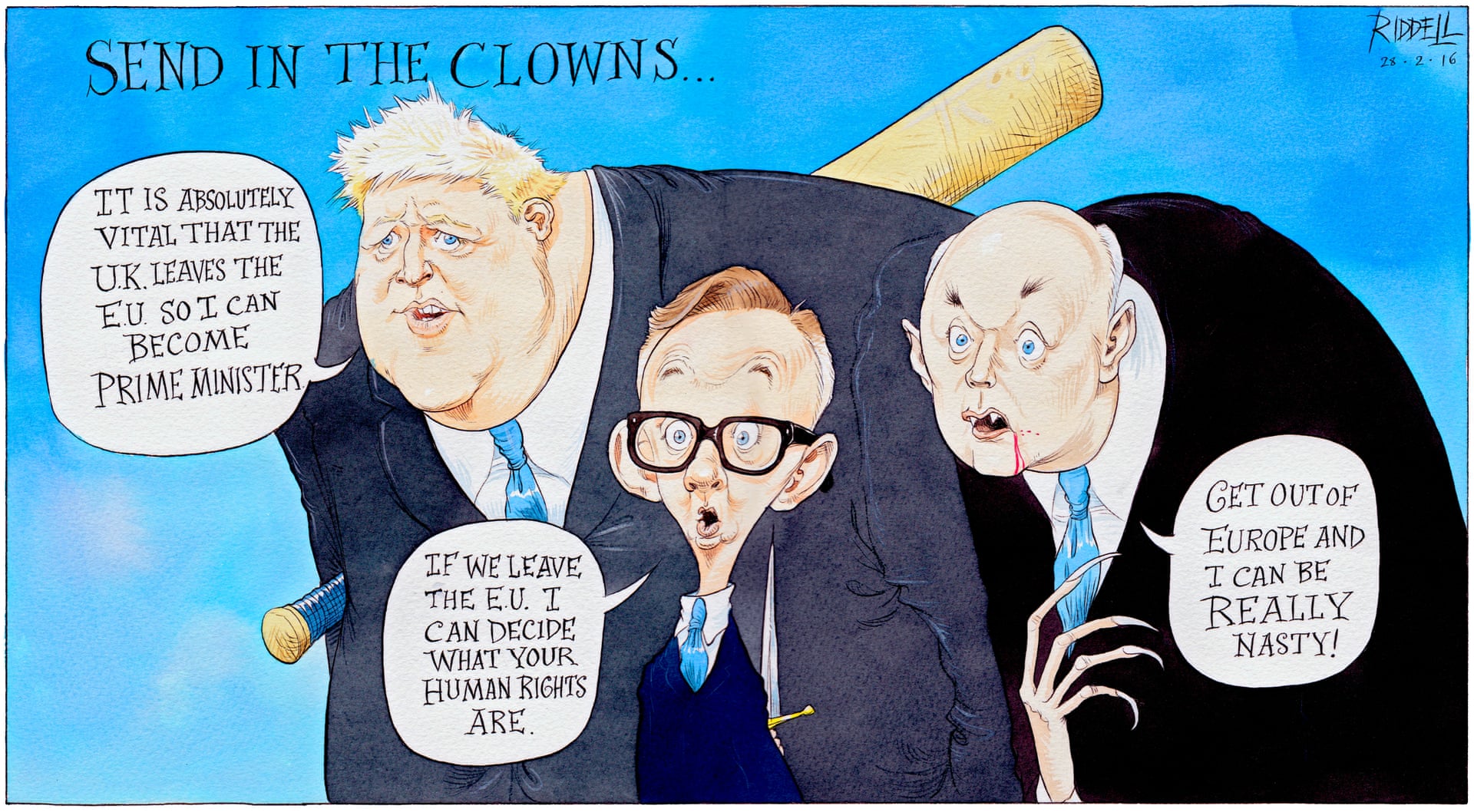




 I am very grateful to a colleague at work who clearly to took pity on me after seeing all those book reviews on strategy and management stuff. Thinking that I needed a break but realizing that Dostoyevsky or Tolstoy was probably a waste of time, she offered me a collection of cartoons on office humour taken from The New Yorker. Work is one of those things that unite people across borders. Many of the cartoons are easy to identify with whether you are in Stockholm, Shanghai or Santiago de Chile. It is a nice way to take a break.
I am very grateful to a colleague at work who clearly to took pity on me after seeing all those book reviews on strategy and management stuff. Thinking that I needed a break but realizing that Dostoyevsky or Tolstoy was probably a waste of time, she offered me a collection of cartoons on office humour taken from The New Yorker. Work is one of those things that unite people across borders. Many of the cartoons are easy to identify with whether you are in Stockholm, Shanghai or Santiago de Chile. It is a nice way to take a break.  Commissioned by EFMD and Emerald, this book is an analysis of thirty-nine interviews of key stakeholders in management education. It sets out some of the major issues and talking points, taking the reader through the history of management education to ongoing challenges. Many of these issues are not new, such as the role and value of research, the relevance of teaching done in the classroom, and links to the corporate world. Criticisms of business schools have been ongoing over the past ten years, most notably from within the industry. In 2005, Chris Grey of Warwick Business School argued that they have become just finishing schools for elites to prepare them for well-paid positions in finance and consulting.
Commissioned by EFMD and Emerald, this book is an analysis of thirty-nine interviews of key stakeholders in management education. It sets out some of the major issues and talking points, taking the reader through the history of management education to ongoing challenges. Many of these issues are not new, such as the role and value of research, the relevance of teaching done in the classroom, and links to the corporate world. Criticisms of business schools have been ongoing over the past ten years, most notably from within the industry. In 2005, Chris Grey of Warwick Business School argued that they have become just finishing schools for elites to prepare them for well-paid positions in finance and consulting. 
 It was our pleasure to meet George Ghali, managing director of technology enablement, and almost complete team of senior consultants at Slalom. This consulting company offers a service that links business and technology but for them, technology is not seen as a solution but as a tool in order to succeed. It’s especially Slalom’s new way of doing consulting business that will be remembered in our minds.
It was our pleasure to meet George Ghali, managing director of technology enablement, and almost complete team of senior consultants at Slalom. This consulting company offers a service that links business and technology but for them, technology is not seen as a solution but as a tool in order to succeed. It’s especially Slalom’s new way of doing consulting business that will be remembered in our minds. As we entered in the lobby of the foundation, we felt the humility of the atmosphere. The foundation stems an instantaneously positive and good feeling of impacting communities. “It’s all about people” said Patrick McMahon, our guide. The aim is to create a sustainable system that supports all communities across the world.
As we entered in the lobby of the foundation, we felt the humility of the atmosphere. The foundation stems an instantaneously positive and good feeling of impacting communities. “It’s all about people” said Patrick McMahon, our guide. The aim is to create a sustainable system that supports all communities across the world.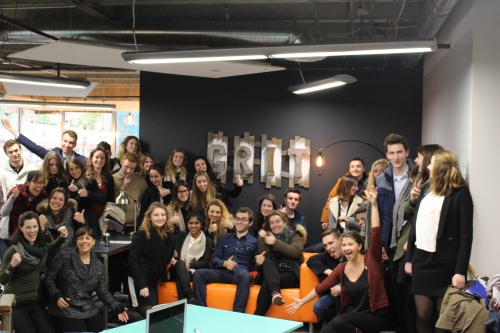 On Thursday February 11, 2016, we had the pleasure of visiting the headquarters of Koru, a startup which aims at reducing unemployement of college graduates. The company’s offices are located in Boston, Seattle, and San Francisco. In the United States, a lot of graduates currently encounter problems with finding a job. They often do not fit the required standards of corporations, 53% of them are un-employed or under-employed.
On Thursday February 11, 2016, we had the pleasure of visiting the headquarters of Koru, a startup which aims at reducing unemployement of college graduates. The company’s offices are located in Boston, Seattle, and San Francisco. In the United States, a lot of graduates currently encounter problems with finding a job. They often do not fit the required standards of corporations, 53% of them are un-employed or under-employed.


